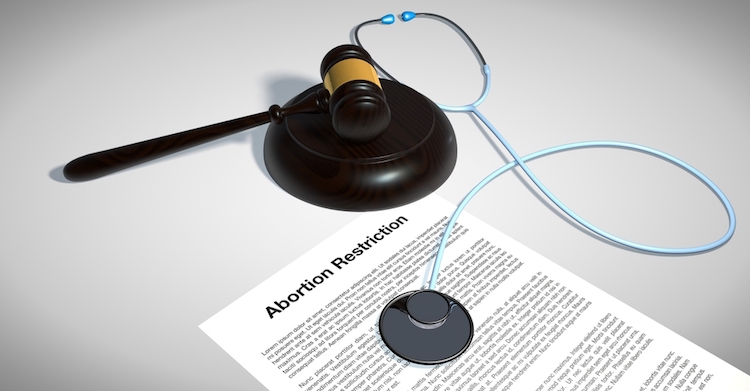Challenge to Texas abortion law faces more delays after SCOTUS allows certified question

Image from Shutterstock.
The U.S. Supreme Court on Thursday refused to block a federal appeals court’s decision to certify a question to the Texas Supreme Court regarding the challenge to the state’s abortion law.
The Supreme Court’s refusal to intervene allowed the state of Texas “to slow-walk the case” in which abortion providers are challenging the ban on abortions after six weeks of pregnancy, said the American Civil Liberties Union in a press release.
The law relies on the general public, rather than the state, for enforcement. It authorizes lawsuits by private parties who may seek $10,000 in damages against anyone who aids an abortion after six weeks of pregnancy.
The 5th U.S. Circuit Court of Appeals at New Orleans is asking the Texas Supreme Court to determine whether state licensing officials have authority to discipline medical professionals who violate the law. The Supreme Court ruled in December that abortion providers could sue state licensing officials but not other defendants who lack enforcement authority or are immune from suit.
The Supreme Court’s three liberal justices dissented from the Supreme Court majority’s refusal to order the case returned to a federal district court to consider the challenge. That court had initially blocked the law, but the Supreme Court previously allowed the measure to remain in effect during the litigation.
SCOTUSblog, the Washington Post, the New York Times and Law.com have coverage.
Justices Stephen G. Breyer and Sonia Sotomayor wrote separate dissents that were joined by each other and by Justice Elena Kagan.
Sotomayor said the Supreme Court had already decided that state licensing officials had authority to enforce the law for purposes of the motion to dismiss stage.
“One month after directing that the petitioners’ suit could proceed in part, the court countenances yet another violation of its own commands,” Sotomayor wrote. “Instead of stopping a 5th Circuit panel from indulging Texas’ newest delay tactics, the court allows the state yet again to extend the deprivation of the federal constitutional rights of its citizens through procedural manipulation. The court may look the other way, but I cannot.”
Write a letter to the editor, share a story tip or update, or report an error.


